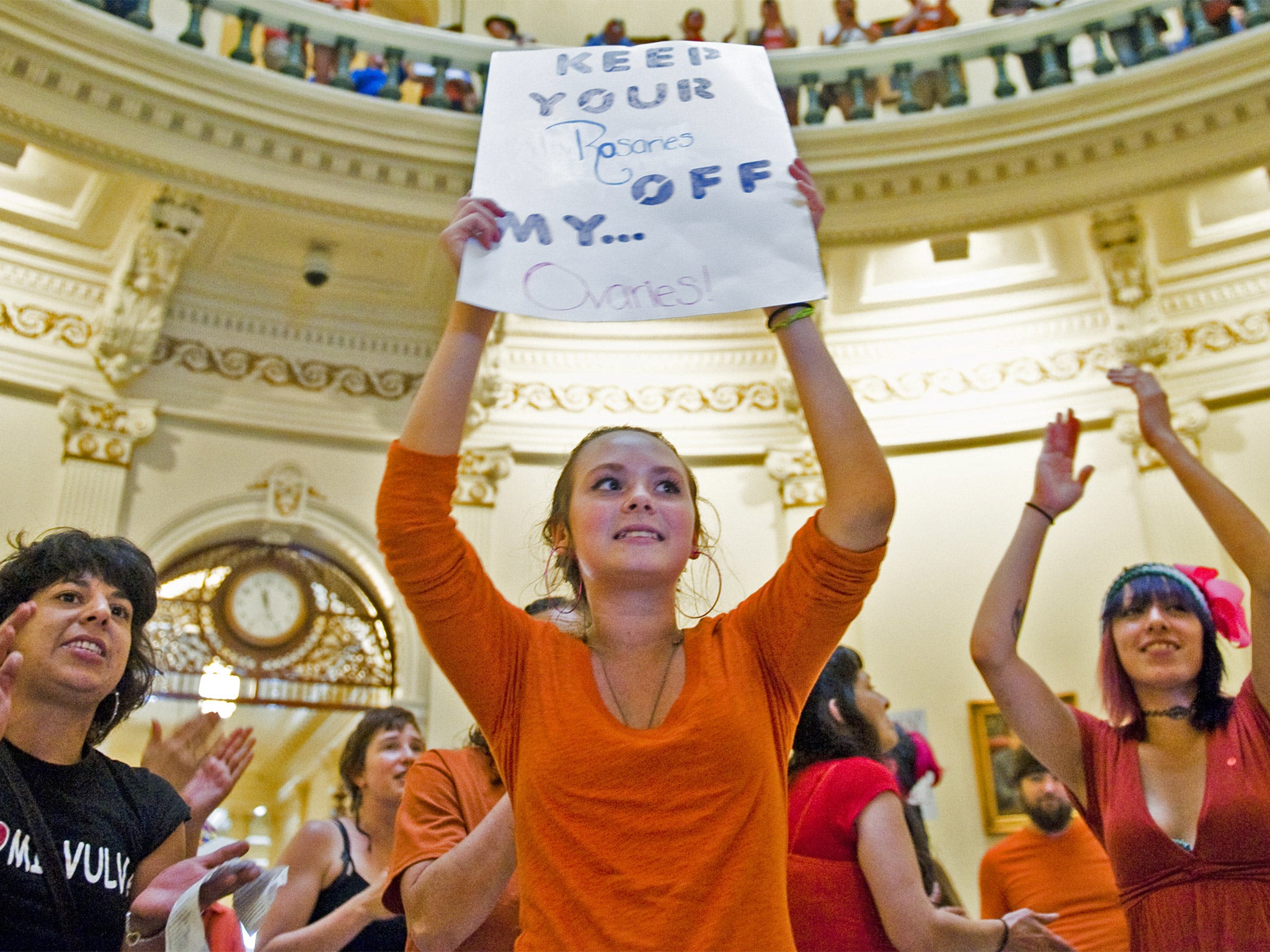Texas abortion battle: 110 women speak about their own abortions in a bid to overturn restrictions
The list includes actress Amy Brenneman who got pregnant as a Harvard junior at 21 years old

Your support helps us to tell the story
From reproductive rights to climate change to Big Tech, The Independent is on the ground when the story is developing. Whether it's investigating the financials of Elon Musk's pro-Trump PAC or producing our latest documentary, 'The A Word', which shines a light on the American women fighting for reproductive rights, we know how important it is to parse out the facts from the messaging.
At such a critical moment in US history, we need reporters on the ground. Your donation allows us to keep sending journalists to speak to both sides of the story.
The Independent is trusted by Americans across the entire political spectrum. And unlike many other quality news outlets, we choose not to lock Americans out of our reporting and analysis with paywalls. We believe quality journalism should be available to everyone, paid for by those who can afford it.
Your support makes all the difference.More than one hundred women in the professions are taking a proactive step in the fight for gender equality by revealing their own stories of having an abortion, just a few days before a major court ruling in Texas.
The women, many of whom work in the legal profession across the US, have filed several supporting briefs as part of a Supreme Court abortion case which is taking place on Wednesday.
Justice Anthony M Kennedy, who ruled in favour of same-sex marriage in June last year, has come under fire for his “patriarchal” comments in 2007 when he said that many women “regretted” their decision to get an abortion and suffered depression and low self-esteem.
In a bid to change his thinking, the women in the brief sought to use similar language that Justice Kennedy used in the same-sex ruling, like “equal dignity”.
One of the women to give a testimony was actress Amy Brenneman, who has starred in “NYPD Blue” and “Judging Amy”. She had an abortion when she was 21 years old and a junior at Harvard after her birth control failed.
“I didn’t have a college degree,” she told the New York Times. “I didn’t have an income. I didn’t have a marriage. I didn’t have anything a child needs. And I didn’t want it.”
Many of the women in the supporting briefs related how their abortion played a part in securing their future and their career, and made many of them cherish motherhood at the right time in their lives.
One current law student wrote: “My decision to have an abortion was essential to the freedom that allowed me to finish college while working more than one job; to move across the country two weeks after graduation to take my dream job; and to attend law school and . . . to continue to pursue my dreams.”
The case on Wednesday, Whole Women’s Health v. Hellerstedt, No. 15-274, concerns a challenge of a restriction imposed by a law in Texas. The law, opponents say, could reduce the number of clinics in Texas to about 10 from 40 by requiring clinics to meet the same standards as walk-in surgical centers, despite the fact that majority of abortions are not surgical procedures.
It is not known how Justice Kennedy will rule, but the outlook is fragile. He has only found an abortion restriction unconstitutional once in 28 years at the Supreme Court, according to Professor David S. Cohen, a law professor at Drexel University.
In 2007 Justice Kennedy wrote: “While we find no reliable data to measure the phenomenon, it seems unexceptionable to conclude some women come to regret their choice to abort the infant life they once created and sustained. Severe depression and loss of esteem can follow.”
His line of thinking has been supported by the likes of Allan E. Parker Junior, a lawyer with anti-abortion group the Justice Foundation, who filed a brief of 3,000 women who say they suffered negative psychological or physical harm from their abortions. Many of the women are identified by their first names or initials.
“The abortion industry is trying to make it sound like abortion is a joyful experience,” he said. “But even women who say it was necessary say it was not joyful. It is a grief and a blackness, and it changes you.”
A woman named K.E said in the brief: “I was scared and did not really want to go through with it. No one told me that I would think about this every day for the rest of my life. No one told me the sense of loss I would feel. No one told me that forgiving myself would never come. My mother and father regret the choice they made for me.”
Join our commenting forum
Join thought-provoking conversations, follow other Independent readers and see their replies
Comments